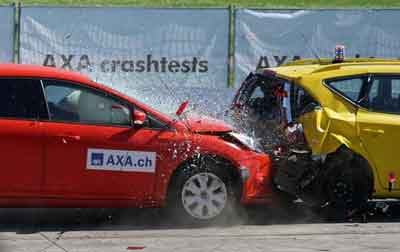Being involved in an accident is always a traumatic experience, and when combined with the fact that the other party is not cooperative, it is even more stressful. Whether you are at fault or the other person made a mistake if you end up having to deal with the wrong kind of person, even something as small as a fender bender can be a headache to manage.
In all that turbulence, it’s easy to lose track of your legal position in the situation and make a decision in the heat of the moment which will cost you more than what you are responsible for.
If you ever get into an accident, or you have recently had an accident, these are some useful things to keep in mind that will help you deal with the situation, in a way that will protect you physically, financially, and legally.
1. What To Do At The Site Of The Accident
The moment right after the collision is the most terrifying and confusing of the entire accident. You have just had an accident; you are disoriented, in shock, and you are trying to get your bearings both mentally and physically.
It’s easier said than done, but if you are fortunate enough to be conscious, the first thing you need to do is calm down and not do anything. Take a moment to absorb the incident, have a look around the vehicle to check on your passengers and outside as well to see what’s going on around you before you do anything.
Every year, millions of people are injured and thousands are killed in road accidents across America. The first thing you want to do is ensure that you and your passengers are safe with no visible injuries.
Some injuries, especially internal injuries, will only surface after a few hours or even days. When you are sure everyone is safe, consider moving your vehicle to the side of the road so as to not interrupt traffic and risk another accident by being a target of high-speed oncoming traffic.
Move to a place where you are still visible to the public, and if it’s nighttime, you want to be in a well-lit area.
2. Get In Touch With Legal Authorities
If you don’t know your location, ask a local to give you your exact location and look around to find house numbers, street names, or addresses on signboards. If anyone in the vehicle appears to be hurt or in need of medical attention, call the ambulance right away.
Make sure you have your location on hand, so you can quickly guide them to yourself. Authorities will want to note your name and other personal information which help identify you in the national database, so make sure you provide these with accuracy, you can read it off your ID just to make sure it is accurate.
The authorities you can contact and how you can contact them will vary by state, even though you can text 911 it is highly recommended you call if you can. If you don’t know what contact numbers are for local authorities, get in touch with 911 or call the highway patrol.
After you have contacted the local authorities, the next thing you should do is contact your insurance company. While it is important to get in touch with your insurance company, the legal professionals at Beleslaw.com recommend that you also contact your lawyer or legal consultant.
Depending on the kind of insurance you have, your insurance company might be able to arrange a pickup vehicle for you and also get your vehicle towed to their yard or preferred repair shop, making it much easier for you to manage the situation.
Ideally, you should also get in contact with the local police station and file a report right away. This is a very important document that will be of immense value later on for insurance and legal purposes.
3. Collect Information
While there are many personal documents that you will need to provide to your lawyer and the law enforcement institutions, the most critical information you will need in the case are the details of the other driver.
These include things such as name and address, car information, insurance number, and insurance details as well as their driver’s license and vehicle license plate data. When you’re collecting this information from the driver, try not to say anything about the accident or talk about whose fault it was, collect the information and let the authorities decide what to do.
One of the biggest mistakes that people make is they start discussing the problem with the person and try to work out a cash deal on the spot. Even if it is a small accident and no one is hurt, it’s best to let the matter follow its natural legal course. Engaging in small talk and discussing a deal could have legal implications later on in the case.
Getting involved in an accident is surely an upsetting experience. However, it is important to know the points stated above because, given the situation, these steps will ensure your rights’ protection in the most unexpected incidents.





No Comments